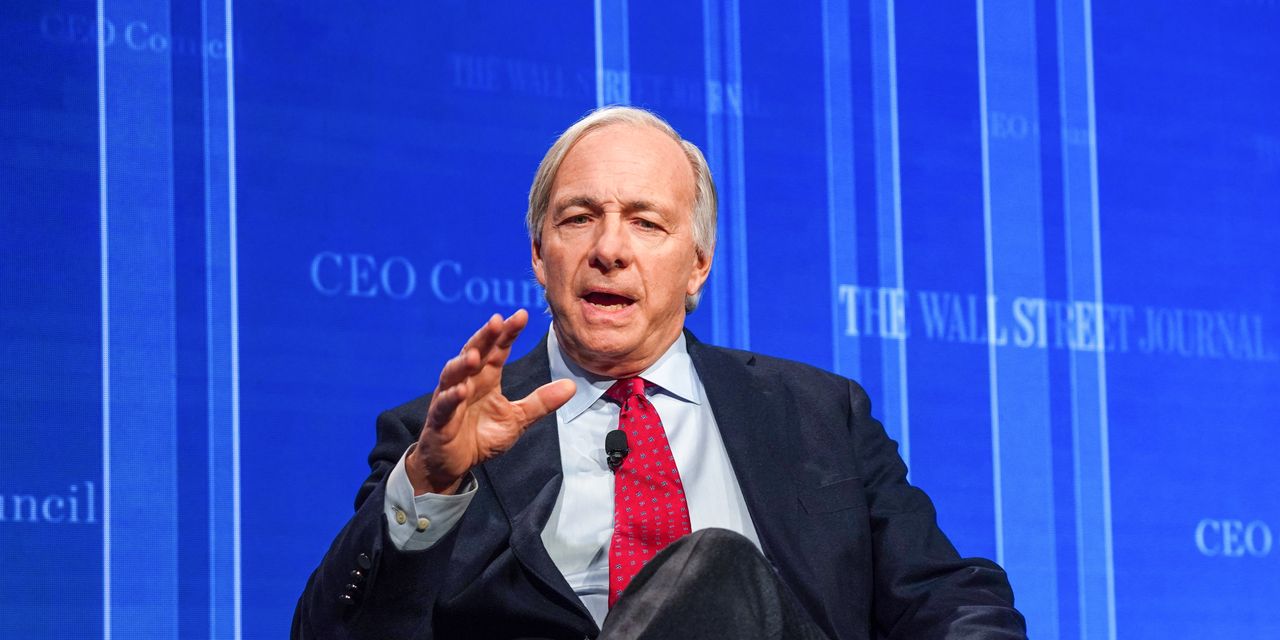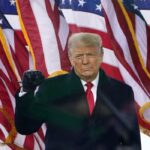
Bridgewater Associates LP founder Ray Dalio backed China’s push for “common prosperity,” or greater equality, under President Xi Jinping and said countries such as the U.S. could benefit from a similar approach.
Beijing’s pursuit of common prosperity has been a driver behind its wide-ranging crackdowns on sectors such as e-commerce, videogames, property and after-school tutoring. The heightened regulatory pressure in turn has caused steep declines for many Chinese stocks listed in the U.S. and Hong Kong, and prompted many investors to reassess the risks and rewards of Chinese assets.
Mr. Dalio, a longtime China bull, however, has warned market watchers not to misinterpret the actions as demonstrating that Chinese leaders were “showing their true anticapitalist stripes,” and has stressed the benefits of investing in the country.
“Common prosperity is a good thing,” Mr. Dalio said in a video appearance at UBS Group AG’s Greater China Conference on Monday. “It’s another way of saying prosperity for most people.”
Mr. Dalio said his views on the topic were “pretty much aligned” with those of the Chinese leadership, and widespread opportunity would lead to a better economy and a fairer system.
“As Deng Xiaoping and others understood, it’s a cycle,” Mr. Dalio said. “First you get rich, and then you make a point of distributing those opportunities in a more equal way.” Mr. Deng, China’s former paramount leader, unleashed economic reforms from the late 1970s onward. Those changes allowed China to grow much faster than it had under former Communist Party leader Mao Zedong, who died in 1976.
“A lot of people don’t know the true thinking, even though there have been attempts to describe it, and tend to make the mistake of thinking that this is like a return to communism under Mao, rather than understanding it’s just part of the evolutionary process,” he said.
Mr. Dalio said he thought that through its own system, the U.S. “needs more common prosperity, a lot of countries do.” His presentation showed U.S. wealth and income gaps at heights last hit in the 1930s.
Ahead of the same conference, a senior banker told reporters that China was committed to welcoming global investors and to further opening up its financial markets.
Tommie Fang, UBS’s head of China global markets, said Friday that he had recently spent a week in Beijing meeting with financial regulators. Mr. Fang said he had seen “a lot of positive energy, pro-business and opening-up” attitude in his meetings with the central bank, securities, banking and foreign-exchange regulators, and leadership at the new Beijing Stock Exchange.
In late July, after a crackdown on tutoring roiled markets, the China Securities Regulatory Commission met privately with representatives of global financial institutions and tried to assuage investors’ concerns, saying China would consider the market impact before introducing future policies.
Mr. Fang, who attended the July meeting, said: “I firmly stand by the view that the policy environment in China is more stabilized and the valuations are more attractive versus the beginning of last year.”
He said Chinese regulators were “making very clear and dedicated efforts to enhance the dialogue” with their U.S. counterparts over U.S.-listed Chinese companies, which face the threat of delisting in a dispute over access to audit papers.
Mr. Dalio told conference attendees that his hedge-fund management firm had thrived since it started applying its all-weather approach, which aims to make money regardless of broader market moves, to investing in mainland China.
“We’ve been doing that for about three years onshore. That’s done very well, whether the direction of the market is up or down. I’m just thrilled to be a participant,” he said. In November, The Wall Street Journal reported that Bridgewater had raised the equivalent of $1.25 billion for its third investment fund in China, its largest to date.
Mr. Dalio advised investors to be wary of holding cash, given its drawbacks on an inflation-adjusted basis. “Stop viewing cash as a safe investment. Investors think of cash as safe because it doesn’t have much volatility. The mind-set needs to change,” he said.
Write to Quentin Webb at [email protected] and Jing Yang at [email protected]
Copyright ©2022 Dow Jones & Company, Inc. All Rights Reserved. 87990cbe856818d5eddac44c7b1cdeb8








